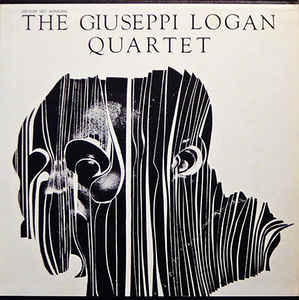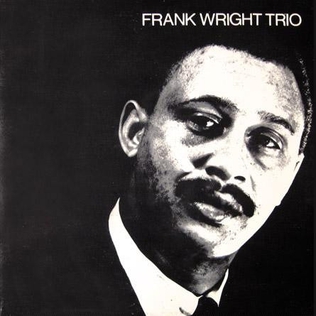
James Marcellus Arthur "Sunny" Murray was an American musician, and was one of the pioneers of the free jazz style of drumming.

Barry Altschul is a free jazz and hard bop drummer who first came to notice in the late 1960s for performing with pianists Paul Bley and Chick Corea.

Herman Davis "Dave" Burrell is an American jazz pianist. He has played with many jazz musicians including Archie Shepp, Pharoah Sanders, Marion Brown and David Murray.

Alan Silva is an American free jazz double bassist and keyboard player.

Marion Brown was an American jazz alto saxophonist, composer, writer, visual artist, and ethnomusicologist. He was a member of the avant-garde jazz scene in New York City during the 1960s, playing alongside musicians such as John Coltrane, Archie Shepp, and John Tchicai. He performed on Coltrane's landmark 1965 album Ascension. AllMusic reviewer Scott Yanow described him as "one of the brightest and most lyrical voices of the 1960s avant-garde."

Spiritual Unity is a studio album by American free jazz saxophonist Albert Ayler. It was recorded on July 10, 1964 in New York City, and features bassist Gary Peacock and drummer Sunny Murray. It was the first album recorded for Bernard Stollman's ESP-Disk label, and it brought Ayler to international attention as it was so "shockingly different". At the same time, it transformed ESP-DISK into "a major source for avant-garde jazz". A 5-star review in AllMusic called it a "landmark recording that's essential to any basic understanding of free jazz", "the album that pushed Albert Ayler to the forefront of jazz's avant-garde... really the first available document of Ayler's music that matched him with a group of truly sympathetic musicians", and stated that "the results are a magnificently pure distillation of his aesthetic."
Frank Wright was an American free jazz musician, known for his frantic style of playing the tenor saxophone. Critics often compare his music to that of Albert Ayler, although Wright "offers his honks and squawks with a phraseology derived from the slower, earthier funk of R&B and gospel music." According to AllMusic biographer Chris Kelsey, Wright "never recorded even a single record under his own name for a major label; he was 'underground' his entire career." In addition to tenor saxophone, Wright also played the soprano saxophone and bass clarinet.

New York Eye and Ear Control is an album of group improvisations recorded in July 1964 by an augmented version of Albert Ayler's group to provide the soundtrack for Michael Snow's film of the same name.
Muhammad Ali is an American free jazz drummer.

The Major Works of John Coltrane is a compilation album by jazz musician John Coltrane, released in 1992 by GRP Records. It features extended compositions, all recorded in 1965 with expanded ensembles, and originally released by Impulse! Records on Ascension, Om, Kulu Sé Mama, and Selflessness: Featuring My Favorite Things. Both editions of Ascension are included.

Mario Pavone was an American jazz bassist, composer and bandleader. Jazz critic Kevin Whitehead offers that Pavone was not only "great bass player [but also a] big-hearted mensch."

Barrage is the fifth album led by jazz pianist Paul Bley. The album was recorded by Bley's quintet in 1964, released by ESP-Disk, and features saxophonist Marshall Allen in a rare appearance outside the band of Sun Ra.

Closer is the seventh album led by jazz pianist Paul Bley, featuring seven compositions by Carla Bley, recorded in 1965 and released on the ESP-Disk label.

The Giuseppi Logan Quartet is an album by American jazz saxophonist Giuseppi Logan, recorded at Bell Sound Studios in 1964 and released in 1965 on the ESP-Disk label. His first recording as leader, it features Logan on alto saxophone, tenor saxophone, Pakistani oboe, bass clarinet, and flute along with pianist Don Pullen, bassist Eddie Gómez, and drummer Milford Graves. Logan had moved to New York City in September 1964, and the recording took place shortly after the October Revolution in Jazz, at which Logan performed, and during which he met ESP-Disk founder Bernard Stollman. According to Logan, the musicians had not played together prior to the recording session.

Luna Surface is an album by multi-instrumentalist Alan Silva, recorded on August 17, 1969 and released later that year on the BYG label as part of their Actuel series. His first recording as leader, it features Silva on violin along with a large ensemble known as the Celestrial Communication Orchestra.

Sunny Murray, also known as Sunny Murray Quintet, is an album by American free jazz drummer Sunny Murray, his second as a leader. It was recorded in New York City in January, 1966, and released on the ESP-Disk label. The album features Murray on drums along with alto saxophonists Byard Lancaster and Jack Graham, trumpeter Jacques Coursil, and bassist Alan Silva. A remastered version, which includes an interview between Murray and ESP founder Bernard Stollman, was issued by ESP-Disk in 2007.

Frank Wright Trio is the debut album by saxophonist Frank Wright. It was recorded in November 1965 in New York City, released by ESP-Disk in 1966, and reissued on CD in 1992. On the album, Wright is joined by bassist Henry Grimes and drummer Tom Price. The tracks were also reissued in 2005 on the Frank Wright compilation The Complete ESP-Disk Recordings.
Jacques Coursil was a composer, jazz trumpeter, scholar, and professor of literature, linguistics, and philosophy.

The Will Come, Is Now is an album by bassist Ronnie Boykins, his sole release as a leader. It was recorded during February 1974, and was released on LP in 1975 by ESP-Disk. On the album, Boykins is joined by multi-instrumentalists Joe Ferguson and Jimmy Vass, saxophonist Monty Waters, trombonist Daoud Haroom, and percussionists Art Lewis and George Avaloz. Saxophonist Marzette Watts was the recording engineer.

At Judson Hall is a live album by alto saxophonist Noah Howard. It was recorded at Judson Hall in New York City on October 19, 1966, and was released in 1968 by ESP-Disk. On the album, Howard is joined by trumpeter Ric Colbeck, cellist Catherine Norris, pianist Dave Burrell, bassist Norris Jones, and percussionist Robert Kapp.


















